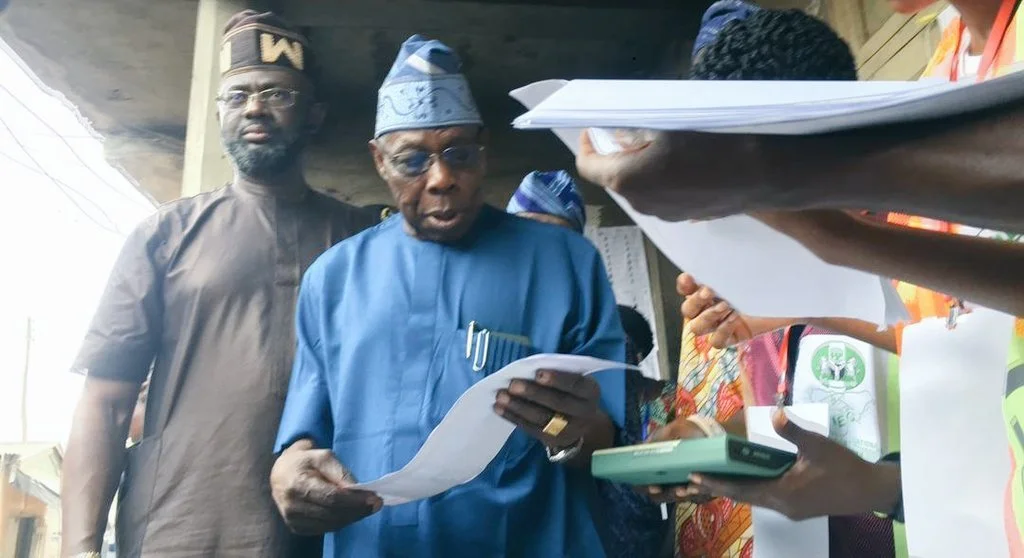‘Obasanjo is plotting a palace coup,’ says former INEC commissioner
Former Independent National Electoral Commission national commissioner Lai Olurode has blasted former President Olusegun Obasanjo for allegedly seeking to sabotage Nigeria's electoral process through the back door.
Mr Olurode, a retired sociology professor, said that Mr Obasanjo's letter on the outcomes of the presidential and National Assembly elections should not be confused for an older statesman's patriotism.
He called Mr. Obasanjo's hostile discussion of canceling elections "not only ridiculous, but counter-productive, and a dreadful invitation to murder."
Although he recognized that INEC might have done better in carrying out its duties, he also stated that the commission has altered gears and improved from what it was previously known for.
He believed that whatever flaws or failures were discovered had legal remedies.
"In all honesty, given Nigeria's geographical vastness, the best we can do is remain optimistic in the idea that INEC would do better in the next round of elections in March," Mr Olurode said in a statement on Tuesday.
"Furthermore, canceling the elections would be a setback and reversal of our democracy progress, which no one should support."
In his remarks, Mr Olurode remembered that Mr Obasanjo had presided over some of Nigeria's most anti-democratic elections. He stated that there was nothing to be proud of in Nigeria's 2003 elections, which saw open, flagrant large-scale cheating and were fundamentally defective.
He said that the same thing happened in the 2007 general elections when Mr Obasanjo sought to impose his chosen candidate, late Umar Yar'adua. Mr Yar'adua publicly confessed after winning the election that the electoral processes that brought him to office were primarily defective and fraudulent.
"That is hardly a patriotic appeal from former President Olusegun Obasanjo; it is probably the result of 'bad belle' and personal animosity, vendetta, and settling old scores between Obasanjo and the presidential candidate of the APC whose possibilities of finally winning appear stronger," Mr Olurode stated. "Even elections in saner and more evolved civilizations are not without flaws, fiascos, and skirmishes."
He said that Mr Obasanjo attempted to impose his preferred candidate, late Umar Yar'adua, in the 2007 general elections. After winning the election, Mr Yar'adua openly admitted that the electoral methods that brought him to power were fundamentally flawed and illegitimate.
"It is hardly a patriotic call from former President Olusegun Obasanjo; it is most likely the product of 'bad belle' and personal hatred, vendetta, and settling old scores between Obasanjo and the APC presidential candidate whose chances of eventually winning look better," Mr Olurode added. "Even in saner, more advanced societies, elections are not without defects, fiascos, and skirmishes."







